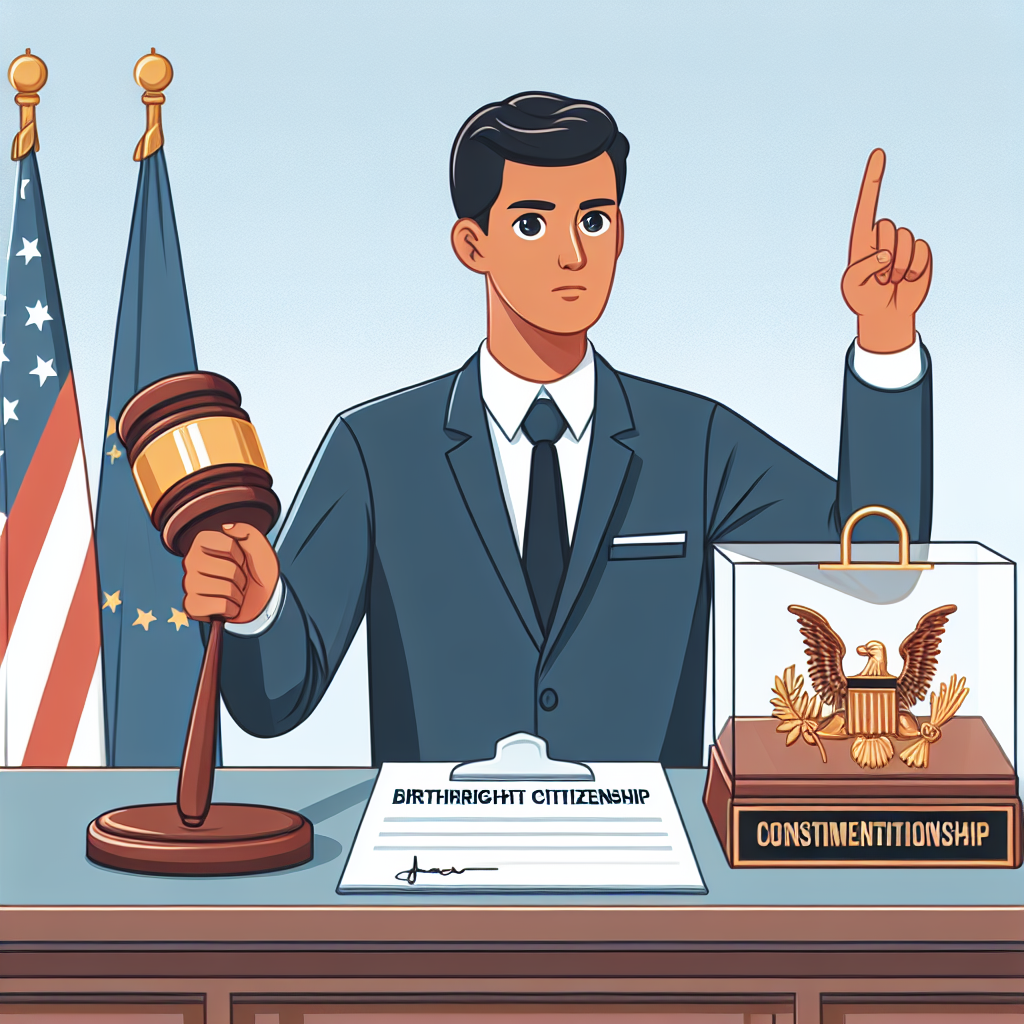The Trump administration has requested the U.S. Supreme Court to take up the case to terminate birthright citizenship, ruling on the legality of the President’s executive order to end birthright citizenship.
On Friday, September 26, John Sauer, the Solicitor General of the United States Department of Justice, filed two petitions urging the Supreme Court justices to review a decision by a federal appeals court and a similar ruling by a federal judge in New Hampshire. Both rulings found that the President’s executive order violated the Constitution.
In the filings, Sauer stated, “The erroneous belief that being born on U.S. soil grants citizenship to any individual subject to U.S. jurisdiction has become widespread and has had destructive consequences.”
The controversy in this case revolves around a provision in the 14th Amendment to the U.S. Constitution, ratified in 1868. The amendment states, “All persons born or naturalized in the United States, and subject to the jurisdiction thereof, are citizens of the United States and of the State wherein they reside.”
The courts have tended to interpret this provision as granting automatic U.S. citizenship to individuals born in the United States, regardless of their parents’ immigration status (with exceptions for children of foreign diplomats or hostile occupying forces).
This right stems from the 14th Amendment, enacted after the Civil War to ensure that individuals born on U.S. soil had equal citizenship rights.
President Trump’s executive order signed on January 20 argues that the government will no longer recognize the citizenship of undocumented immigrant children born in the United States. The government contends that while these children are born in the U.S., they are not subject to U.S. jurisdiction and thus not protected by the 14th Amendment, equating their legal status to that of children of foreign diplomats.
The executive order prohibits any U.S. agency from issuing documents recognizing U.S. citizenship to individuals meeting either of the following conditions: born when their mother was unlawfully present in the U.S. and their father is not a U.S. citizen or lawful permanent resident; or born when their mother was lawfully but temporarily residing in the U.S. (e.g., holding student, work, or tourist visas) and their father is not a U.S. citizen or lawful permanent resident.
Subsequently, a series of legal challenges to the executive order followed, with several federal judges across the U.S. ruling that the President’s order may be unconstitutional.
One district judge, John Coughenour, issued a nationwide injunction banning the enforcement of the executive order, stating that birthright citizenship is “a fundamental constitutional right.”
In March, Sauer filed a lawsuit with the Supreme Court, seeking a judgment on whether judges like Coughenour have the authority to issue broad injunctions, but did not request a ruling on the legality of Trump’s order to end birthright citizenship.
On June 27, the Supreme Court ruled by a 6-3 vote that judges lack the authority to issue broad injunctions, explaining that federal courts can only provide relief limited to the parties involved in specific cases.
On July 10, federal judge Joseph Laplante issued a preliminary injunction in the “Barbara v. Trump” case in New Hampshire, prohibiting the Trump administration from enforcing the executive order for babies born after February 20, 2025. Laplante concluded, “This executive order is likely ‘in tension with the text of the Fourteenth Amendment and its century-old consistent interpretation.'”
On July 23, the Ninth Circuit Court of Appeals ruled that the executive order is “void because it contradicts the clear language of the Fourteenth Amendment, which confers citizenship on ‘all persons born in the U.S. and subject to its jurisdiction.'” However, the judges on the panel had different opinions.
On August 19, the Department of Justice announced plans to appeal the case to the Supreme Court.
On September 26, the Department of Justice filed two petitions: to review the Ninth Circuit Court of Appeals’ decision and directly address the “Barbara v. Trump” case before the First Circuit Court of Appeals makes a decision, requesting a decision for the 2025-26 term (scheduled for October 6).
Sauer argued that the citizenship clause of the 14th Amendment “was aimed at granting citizenship to freed slaves and their children, not to temporary visitors or children of illegal aliens.”
He wrote that this interpretation is supported by “the express terms of the clause, its original understanding and history, and this Court’s precedent.”
Sauer emphasized the significance of this issue, deserving Supreme Court review.
He stated, “The government urgently needs to ensure that U.S. citizenship—the privilege that allows us to choose our political leaders—is granted only to those lawfully entitled to it. The lower court decisions have rendered a vital policy of the President and his government ineffective, thereby compromising our border security.”
The Deputy Solicitor General did not request the Supreme Court to expedite the review. If the Supreme Court decides to take up the case without expediting the process, it is likely that oral arguments will take place sometime in 2026, with a decision expected by late June or early July.

